Interested in raising chickens for eggs? Learn about different chicken breeds, what age to buy, coop design, health care, chicken nutrition and more!
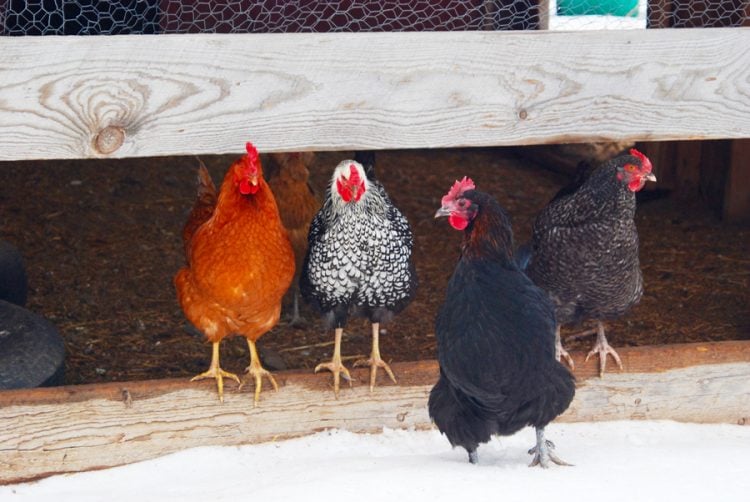
Tis the season for chicken lovers everywhere to resist the urge to purchase just a few more chicks. I am telling you, once you start raising chickens for eggs, it becomes an obsession.
You won’t be able to stop! They have quickly become one of my favorite animals on our hobby farm. Along with this season of chicks and chickens comes a lot of questions! So in today’s post, I’m going to try and answer the most common questions you may have.
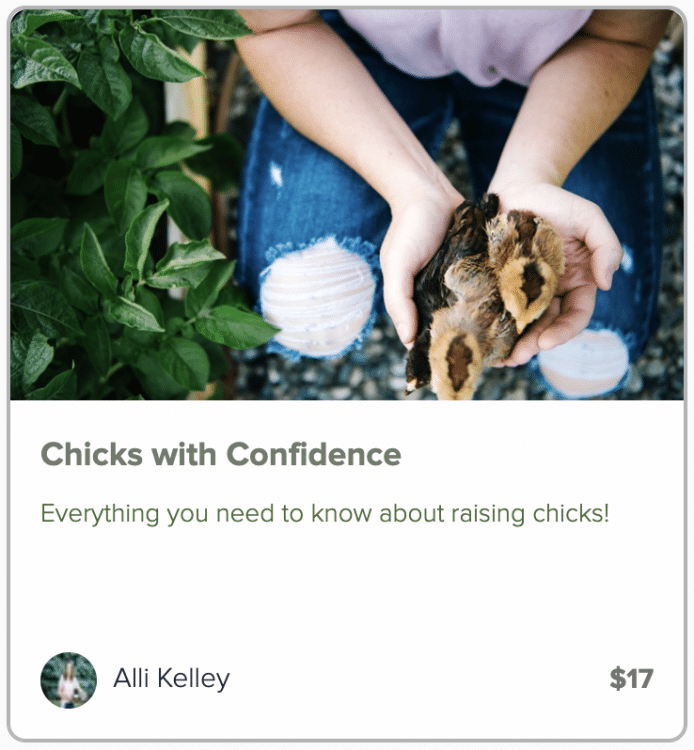
Looking for more in-depth chicken-keeping information? Take my course, Chicks with Confidence!
Chicks with Confidence is a straight to the point, fact based digital course that walks you through exactly what you need to get raising your baby chicks without breaking the bank or causing you to panic everytime they make a weird-sounding peep!
Why it’s great to Raise Chickens For Eggs at Home
- Fresh and nutritious eggs: When you raise chickens for eggs, you have a source of fresh, nutritious eggs at your disposal.
- Fun and educational: Raising chickens can be a fun and educational activity, especially for children. It can teach responsibility, animal care, and basic biology.
- Connection to Nature: Raising chickens for eggs allows you to connect with nature and the natural world. It can be a rewarding experience to watch the chickens grow and develop and to see the benefits of caring for animals firsthand.
Supplies for raising chickens for eggs at home
- Chicken Coop: A sturdy and secure chicken coop is essential for keeping chickens. It should be large enough to accommodate the number of chickens you plan to have and should include nesting boxes, perches, and a roosting area.
- Chicken Feed: Chickens require a balanced diet to lay eggs and maintain their health. You can buy chicken feed from your local farm supply store or online. Depending on the age of your chickens, you may need to buy specific types of feed. More details about feeding chickens can be found in these posts (PVC Pipe Chicken Feeders, What do you feed baby chicks?, What do chickens eat?)
- Water Dispenser: Chickens need access to clean and fresh water at all times. A water dispenser or a chicken waterer is essential to provide them with a constant supply of water.
- Bedding: Bedding is used to line the chicken coop and nesting boxes. It helps absorb moisture, control odor, and provides a comfortable surface for the chickens to rest on. Common bedding materials include straw, wood shavings, and shredded paper.
- Egg Collection Basket: You will need a basket or container to collect the eggs. The basket should be clean and sturdy enough to hold the eggs safely.
- Chicken Wire and Fencing: A secure chicken run is important to keep the chickens safe from predators. Chicken wire and fencing can be used to create a secure area for the chickens to move around in.
- Grit: Chickens need grit to help them digest their food. Grit is small, sharp stones that the chickens swallow to help grind up their food in their gizzard.
- First Aid Kit: It’s a good idea to keep a basic first aid kit on hand in case your chickens get injured. The kit should include antiseptic, bandages, and any medications prescribed by your vet.
- Supplements: Depending on the age and health of your chickens, you may need to provide them with supplements to keep them healthy. Common supplements include calcium and vitamin D to help with egg production.
Egg Laying Chickens: What Breed?
The breed you get will determine how often an egg will be laid, the color of the egg, and the size of the egg. If you want friendly hens, the breed can play a role in that as well, although I think regular handling is more important in that regard. There is nothing wrong with having a fun mix of breeds either – it’s all up to you!
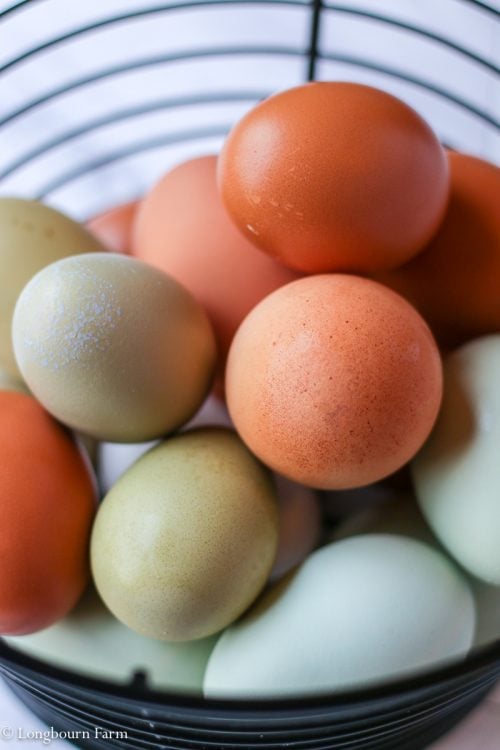
Here are some common breeds and a few qualities about them:
Rhode Island Red
- Most common of backyard chickens.
- Good layers.
- Large brown eggs.
- Cold hardy.
Plymouth Rock Breeds
- Good layers.
- Friendly.
- Large brown eggs.
- Cold hardy.
Sex-linked
- Color of chicken guarantees it’s a female – gold or black.
- Prolific egg layers.
- Very friendly.
- Large brown eggs.
I love this list from My Pet Chicken list from My Pet Chicken. Very comprehensive, accurate and beautiful photos so you’ll know what they look like.
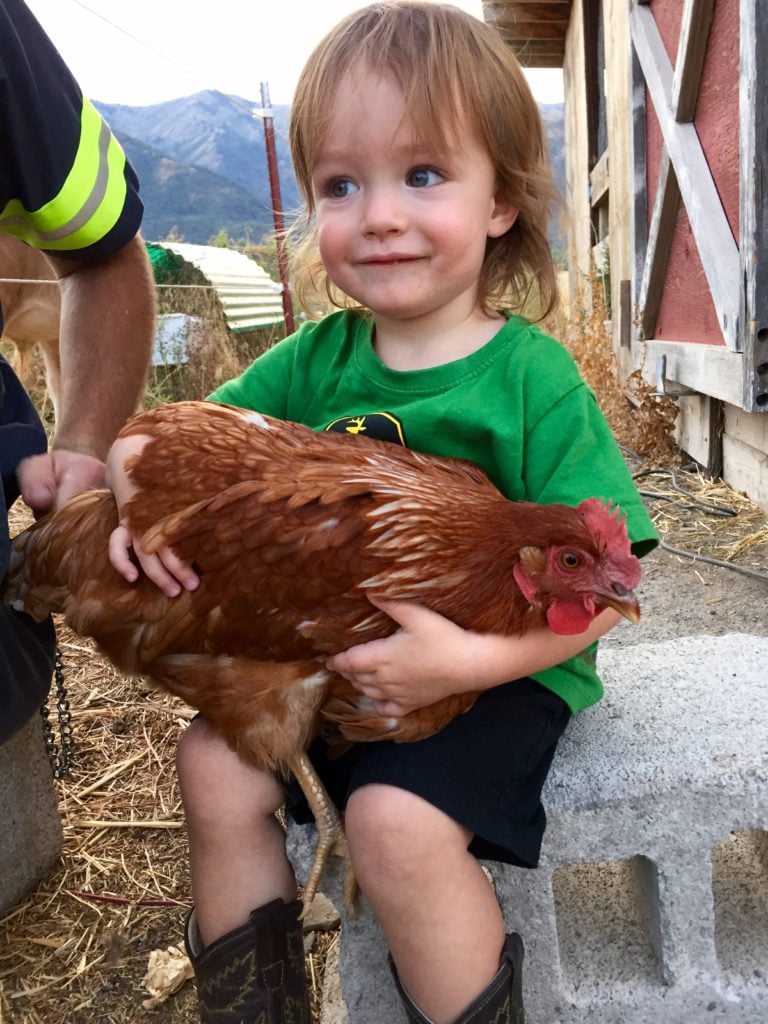
Do all chickens lay eggs?
Yes, all female chickens lay eggs. You can read more about that in this post, Do All Chickens Lay Eggs.
The Best Coop for Egg Laying Chickens
When I first got chickens, I kept them in a chicken tractor. A chicken tractor is basically just a moveable coop with an open bottom.
It allows chickens to graze and eat bugs while still keeping them safe and contained. You move the tractor regularly to supply them with an area that is clean and ready to be grazed. Mine was a pretty simple design, you can read all about chicken tractors by clicking here!

Looking for more in-depth chicken-keeping information? Take my course, Chicks with Confidence!
Chicks with Confidence is a straight to the point, fact based digital course that walks you through exactly what you need to get raising your baby chicks without breaking the bank or causing you to panic everytime they make a weird sounding peep!
To remedy this issue, we turned two old stalls in a barn we were tearing down into a chicken coop and run. It worked out really well, and this year I added a fenced area around the coop so they have more space to wander and graze.
I also love this detailed article from Hobby Farms about building DIY chicken coops. Super helpful!
One of my favorite features we built into our coop is the poop catch under the roosting bars. Now, you may be laughing at that sentence, but hear me out! The chickens will roost at night when they sleep, and that is where the majority of their droppings will be.
It can make for a pretty nasty area under the roost. By building something to catch it all, you really limit how much you have to clean up AND you can use it wherever you want for fertilizer.
Win-win. Oh, and did I mention that my coop really doesn’t stink? Yep, you read that right. It seriously doesn’t smell bad. And it’s mostly due to this awesome design. You can get all the details on my coop here!

Whichever housing system you choose for your chickens should have a few basics: It should be safe, secure from predators, easy to clean, and well ventilated. All of this will help you maintain healthy and happy chickens.
Should chickens be locked in a coop at night?
Yes, chickens should be locked in a coop at night. Chickens roost at night, so they need proper perches in their coop to be comfortable. If chickens are not locked in a coop at night, they are in danger of being eaten by predators. They will try to roost up very high in trees if left out as well, which can result in injury when they jump down.
How to Raise Chickens for Eggs
Check out my course, The Complete Guide to Chicken Keeping. The Complete Guide to Keeping Chickens will teach you what features your coop needs to keep your chickens safe from predators, what to feed them so they thrive, basic healthcare and disease prevention, and so much more.
What to feed chickens to lay eggs:
Chickens who lay eggs will need to be fed a specifically balanced layer feed. You can read more details about feeding chickens in these posts:
- What do chickens eat?
- What CAN’T chickens eat?
- Can chickens eat dog food?
- What do you feed baby chicks?
Additional tips for raising chickens
There are a lot of ways you can make keeping chickens low maintenance. Having enough feeders and waterers in your coop to last 5-7 days while keeping water and feed fresh is a must. Also designing your coop to be easily cleaned can keep things low maintenance.
Egg collection should be done early and often, daily at the least. This ensures clean nesting boxes, clean eggs, and hens that don’t start eating eggs.
Best books on raising chickens:
- Raising Chickens for Beginners: The Complete Guide to Breeds, Housing, Facilities, Feeding, Health Care, Breeding, Eggs, and Meat
- 101 Chicken Keeping Hacks from Fresh Eggs Daily: Tips, Tricks, and Ideas for You and your Hens
- A Kid’s Guide to Keeping Chickens: Best Breeds, Creating a Home, Care and Handling, Outdoor Fun, Crafts and Treats
- Raising Chickens for Beginners: the Complete Crash Course on Raising Your Own Healthy Backyard Flock to Achieve Self-sufficient Egg and Meat Production with Safe, Smell-free Coops
- Mini Farming: Self-Sufficiency on 1/4 Acre
Are you interested in keeping chickens, but worried about not only keeping them alive but making sure they are healthy and thriving?
I have the solution!
The Complete Guide to Keeping Chickens will teach you what features your coop needs to keep your chickens safe from predators, what to feed them so they thrive, basic healthcare and disease prevention, and so much more.
The animals that we bring onto our farm become part of our family.
But caring for chickens is different than your cat or your dog. There are tricks you need to know when it comes to keeping your flock safe and protected.
All the risks with predators and disease are real but preventable if you have the right information!
Chicken Farming for Eggs FAQs
One chicken will lay between 4-6 eggs per week depending on her breed and age
Depending on the breed, you will get 4-6 eggs a week from one chicken. So two will yield about a dozen a week.
One chicken will lay between 4-6 eggs per week depending on her breed and age so from there, you can do the math to figure out how many eggs per week you want and how many chickens you’ll need to provide that.
While it can be a challenge to get all the right equipment and knowledge when you first start, raising chickens for eggs isn’t hard. The setup is time and labor intensive but afterwards, chickens are fairly low-maintenance animals.
The length of time it takes to raise a chicken for eggs depends on the age of the chicken when you acquire it.
If you purchase a chick, it can take around six months for it to reach maturity and start laying eggs. However, it’s important to note that not all chicks will mature at the same time, and it may take longer for some breeds to start laying eggs.
If you purchase a pullet, which is a young hen that is already several months old, it can take anywhere from a few weeks to a few months before they start laying eggs. Again, the exact timing will depend on the breed of chicken and other factors such as their diet, environment, and overall health.
It’s important to note that chickens require proper care and maintenance throughout their lifespan to ensure they remain healthy and productive layers. This includes providing them with adequate food, water, shelter, and veterinary care when needed.

Looking for more in-depth chicken-keeping information? Take my course, Chicks with Confidence!
Chicks with Confidence is a straight to the point, fact based digital course that walks you through exactly what you need to get raising your baby chicks without breaking the bank or causing you to panic everytime they make a weird sounding peep!
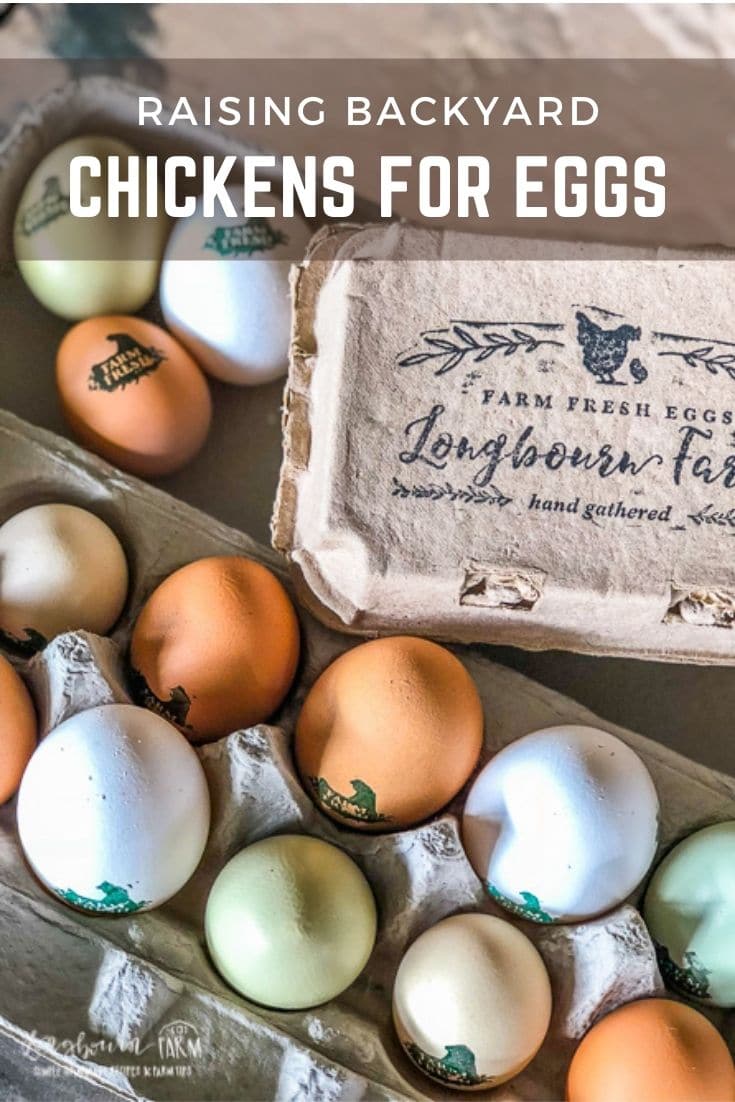
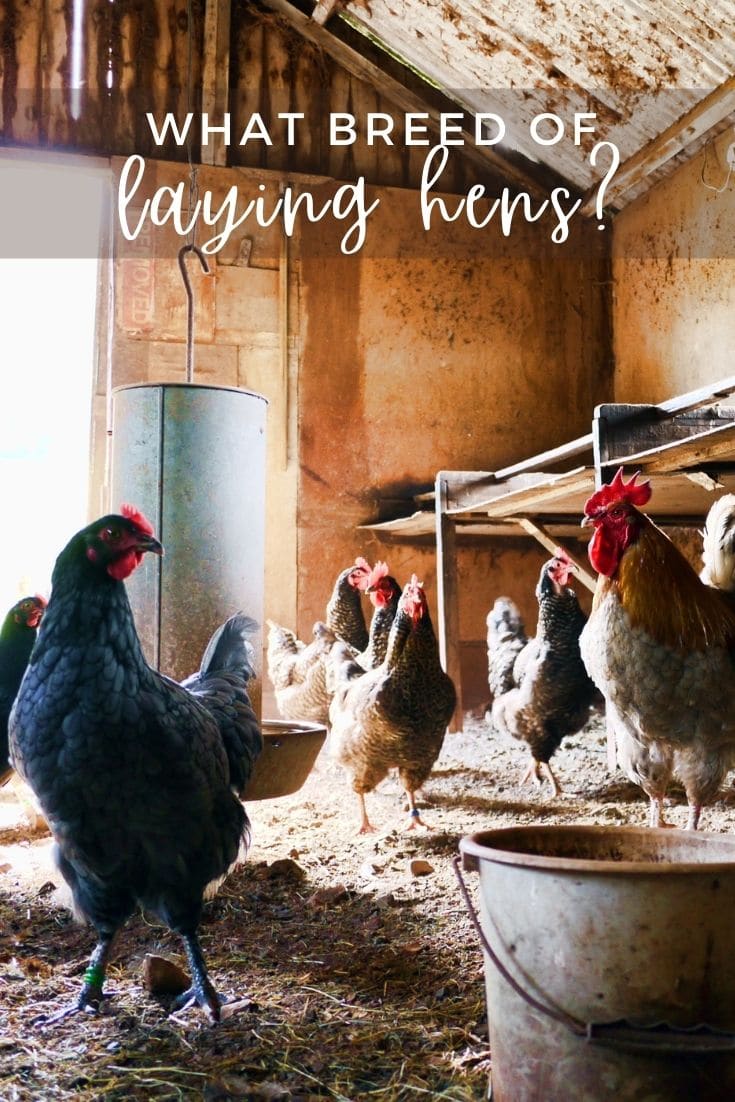
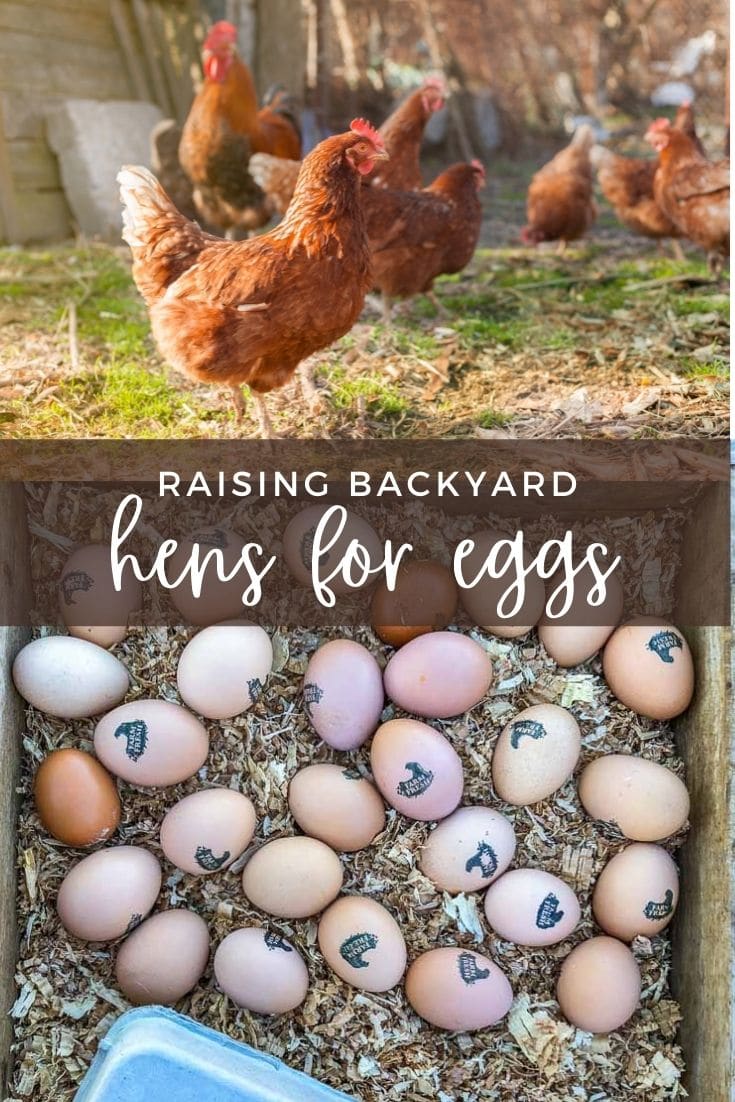





Niki Berry says
Thanks for the info!!
Alli says
You’re welcome!